 -home-
what orchid's this? -
-home-
what orchid's this? -
Which orchid is this ?
SYou bought an orchid and now you absolutely don't know which one it is?
Or you want more information about your plant? Here I have portraied some
of the most common orchids and described them shortly. Of course there are many more
species and if you don't find your plant here it may be due to these limits.
It's best to look for labeled plants when buying orchids.
|
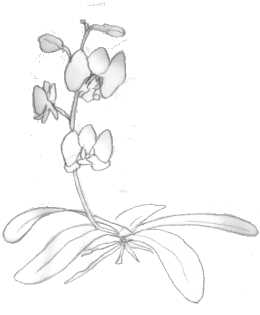
PhalaenopsisPhalaenopsis are perhaps the orchid sold most often. They live epiphytically and come from south-east Asia. They want regular watering and feeding, but like most orchids they don't like to stand in water. They don't need direct sunlight. With a somewhat cooler and dryer time of rest you can encourage flowering. |
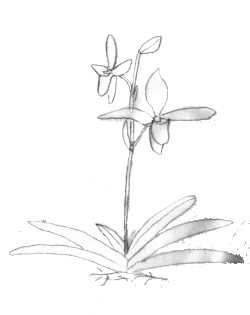
PaphiopedilumYou'll recognize Paphiopedilum by its typical flowers resembling a shoe or slipper. They come from Asia and are mostly rooted in the ground. The flower rises from a rosette of leaves that don't have any storing bulbs and therefore need regular watering. Many modern hybrids are suited for a cultivation indoors for they don't need that much light and can cope with the constant temperature. |
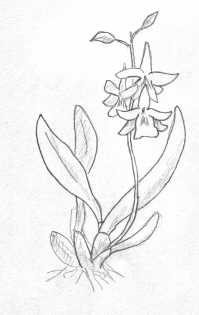
Oncidium...and related genera. Common represantatives of this group are the Vuylstekeara Cambria-hybrids and the Miltonias. The plants all have thickened bulbs, the flower comes from its ground. Different species have many different demands, many need an extensive time of rest. They often need cooler temperatures and high humidity. Please ask what your plant needs and if it's suited to your growing conditions when buying it. |
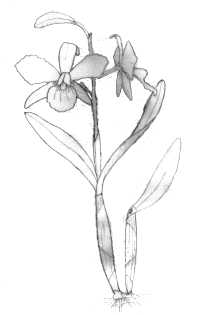
CattleyaThe habitat of these plants is south- and central America. Especially the hybrids are popular. The plants have stalk-like, sometimes thickened bulbs which carry on their top one or two leathery leaves. The flowers appear also at the top and have mostly tube- or cone-shaped lips. The inner petals are often bigger and have folded edges. |
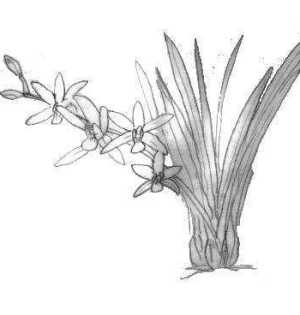
Cymbidiumymbidiums have many long, slim leaves which form a bulb on the ground. From there arise the flower stems that carry many pastel-coloured, star-formed flowers. Cymbidiums are popular flowers for cutting and can get very big. Be careful to buy hybrids that stay somewhat smaller and can tolate higher temperatures. |
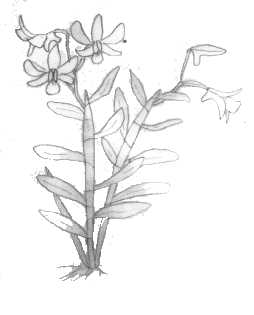
DendrobiumEThere are more than 1000 different Dendrobium species. But only two lines of modern hybrids are of some importance: D. nobile and its hybrids have long stems with many leaves, the leaves last only one or two years. The plants need a stict time of rest - cool, dry and light, then they flower on the older stems. D. phalaenopsis and its hybrids stay smaller, their pointed, firm leaves are long lasting. They don't need such a strict time of rest and like warm, humid air. |